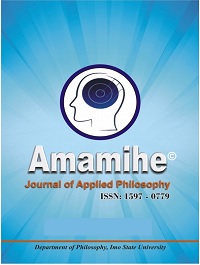SOCIAL MEDIA HATE SPEECH: A SOCIO-PRAGMATICS INVESTIGATION
Abstract
This study focused on identifying, categorizing, and analyzing hate expressions prevalent on social media in Nigeria. Through the use of an internet-based application, the study purposively gathered twenty (20) utterances and two (2) songs containing hate-related content from the period of 2014 to 2023. These samples were sourced from two digital platforms: X (formerly Twitter) and TikTok. Three primary themes of hate speech were identified: ethnic motivated hate speech, religious-motivated hate speech, and politically-motivated hate speech. Ethnic-motivated hate speech emerged as the most dominant category, accounting for 42.3% (n = 11) of the collected data, while politically-motivated hate speech was the least represented at 26.9% (n = 6). Applying the Socio-Pragmatics framework alongside the Hate Speech Act theories to interpret the data, the study highlighted distinct linguistic and contextual features that characterize hate speech. Furthermore, findings revealed that hate expressions were strategically utilized by social media users to demean, dehumanize, or silence individuals/groups targeted by such utterances. It concluded that hate expressions are deliberately crafted to inflict significant emotional and psychological harm on their targets, thereby reinforcing a sense of subordination. Additionally, the recurring use of hate expressions was linked to their function as identifiers or labels for distinguishing concrete entities.


